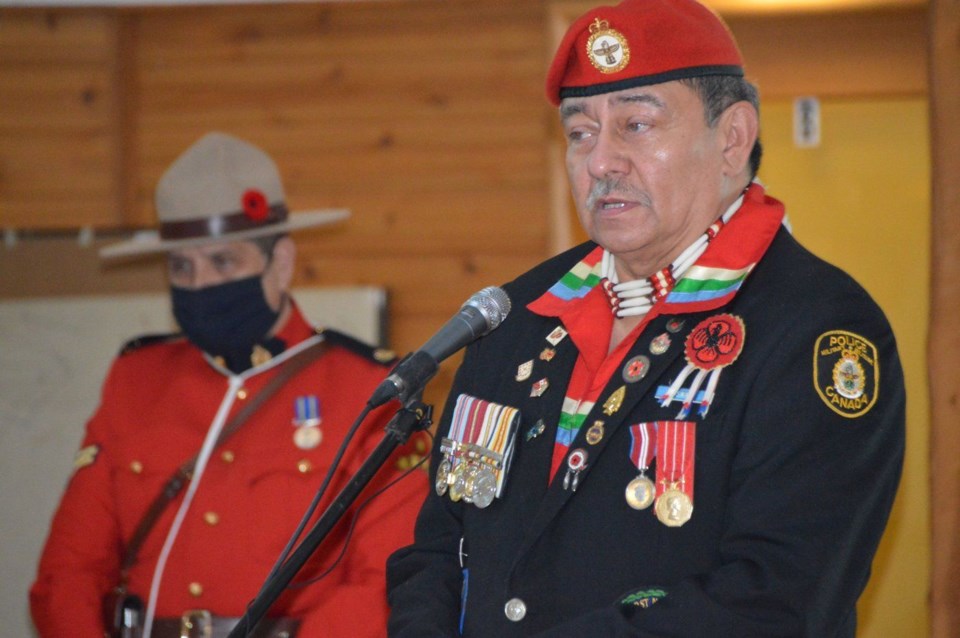Indigenous Canadians who served this country, and those who gave their own lives in that service were honoured and remembered in Winnipeg and across the nation Nov. 8..
Nov. 8 is National Indigenous Veterans Day in Canada, a day that has been observed since 1994, and honours First Nations, Métis and Inuit soldiers who have served their country in military service.
On Monday morning, veterans were honoured at a ceremony hosted by the Manitoba Indigenous Veterans Inc. organization at the Circle of Life Thunderbird House in downtown Winnipeg, one of many ceremonies that took place across the country to mark National Indigenous Veterans Day.
The ceremony saw speeches by several Indigenous veterans, and wreaths laid to honour those who died in the service of their country.
“Thank you for being here to honour the veterans,” retired Cpl. Melvin Swan said to the crowd that gathered at Thunderbird House. “The ones that have passed, the ones that are still out there, the people that still struggle with the system of the military, policing, society, whatever it may be.
“We’re human beings and we will never forget. We will always remember them, the warriors, the veterans.”
Assembly of Manitoba Chiefs (AMC) Grand Chief Arlen Dumas attended the Nov. 8 ceremony, and said it is important to have a day to honour Indigenous veterans, because he said many of those who served this country in times of war weren’t always treated with dignity and respect when they returned home.
“There are all these tremendous warriors, people who were fighting for that treaty relationship and for the freedoms that we all benefit from today,” Dumas said.
“But unfortunately when those warriors had come back, the systemic racism that existed in this country made it very clear to them they were not going to be considered the same systemically.”
Dumas said because of that systemic racism, many Indigenous veterans who served this country have gone unrecognized and undervalued, despite their service and their sacrifices.
“So it is important that we take these initiatives to elevate the issues, and elevate the pride,” Dumas said.
Winston Wuttunee, 81, a veteran who said he served in the military, and has had many of his relatives also serve, was one of several veterans that attended Monday’s ceremony, and he laid a wreath in honour of those who gave their lives.
He said he knows that many Indigenous veterans signed up to serve in war time because they felt a duty to defend not only their country, but also to “defend our earth.”
“Indigenous people believe in the idea of ‘our beautiful earth,’ and when Indigenous people went out to fight they were defending our earth,” Wuttunee said.
“When veterans in the wars came out to fight they were protecting our beautiful earth.”
According to Veterans Affairs Canada (VAC) tens of thousands of Indigenous Canadians served this country during the First and Second World Wars, as well as in the Korean War and beyond.
“The story of Indigenous service in the First and Second World Wars, the Korean War and later Canadian Armed Forces efforts is a proud one,” the VAC said on their website.
“While exact numbers are elusive, it has been estimated that as many as 12,000 First Nations, Métis and Inuit people served in the great conflicts of the 20th century, with at least 500 of them sadly losing their lives.
“These determined volunteers were often forced to overcome many challenges to serve in uniform, from learning a new language and adapting to cultural differences, to having to travel great distances from their remote communities just to enlist.”
— Dave Baxter is a Local Journalism Initiative reporter who works out of the Winnipeg Sun. The Local Journalism Initiative is funded by the government of Canada.




